
Watchmaking is a blend of art and precision. Turning this interest into a profession can be rewarding for those passionate about watches. If you’re thinking about becoming a watchmaker, picking the right school is where it all begins. Let’s explore how to make that choice.
Here are the things you must consider when choosing the right watchmaking school.
- Reputation: Research schools that are known for their watchmaking courses. A school’s reputation can be a good indicator of the quality of education you’ll receive.
- Curriculum: Ensure that the school covers both theoretical and hands-on practical training. A comprehensive curriculum should include everything from basic watch repair to intricate mechanical complications. Not all watchmaking schools are the same.
- Facilities: Modern equipment and facilities are essential. A school with up-to-date tools and machinery ensures you learn current techniques and use industry-standard tools.
- Affiliations: Some watchmaking schools are linked with big watch brands. This can give students special training and job chances later. It’s like having an early head start on work opportunities.
- Duration & Schedule: Consider the length of the course and whether it fits into your schedule. Some programs might be more intensive and shorter, while others could be part-time over a more extended period.
- Location: Think about whether you’re willing to relocate. While some countries like Switzerland and Germany have a rich watchmaking history, others like Japan, the USA, and the UK also offer excellent programs.
- Cost: Tuition and other associated costs can vary widely between schools. Ensure you factor in living expenses if you’re considering studying abroad.
- Visit If Possible: If feasible, visit the schools you’re considering. This lets you get a feel for the environment, meet instructors, and chat with current students.
Before you delve into the details, do you know how much a watchmaker can earn?
The earning potential of a watchmaker is influenced by various factors, including their geographical location, experience level, the prestige of their employer, specializations, and educational background. On average, in many regions, watchmakers can expect to earn between $40,000 to $70,000 annually, though this range can fluctuate based on the variables mentioned earlier.
According to one of the Reddit Users, certified Rolex Watchmakers starting pay is around $50,000

Comparing Watchmaker Training Programs
Typically, there are two distinct watchmaker programs. The Customer Service Watchmaker program emphasizes servicing modern watches using spare parts, with a brief seven-week introduction to micro-mechanics involving wood and brass. On the other hand, the Watchmaker program provides a more comprehensive approach. It delves into creating tools and components from carbon steel, ensuring a deeper understanding of materials and heat treatments. This latter program offers thorough training, covering topics like balance staff replacement, escapement adjustments, and more.
Watchmaking Schools in Switzerland
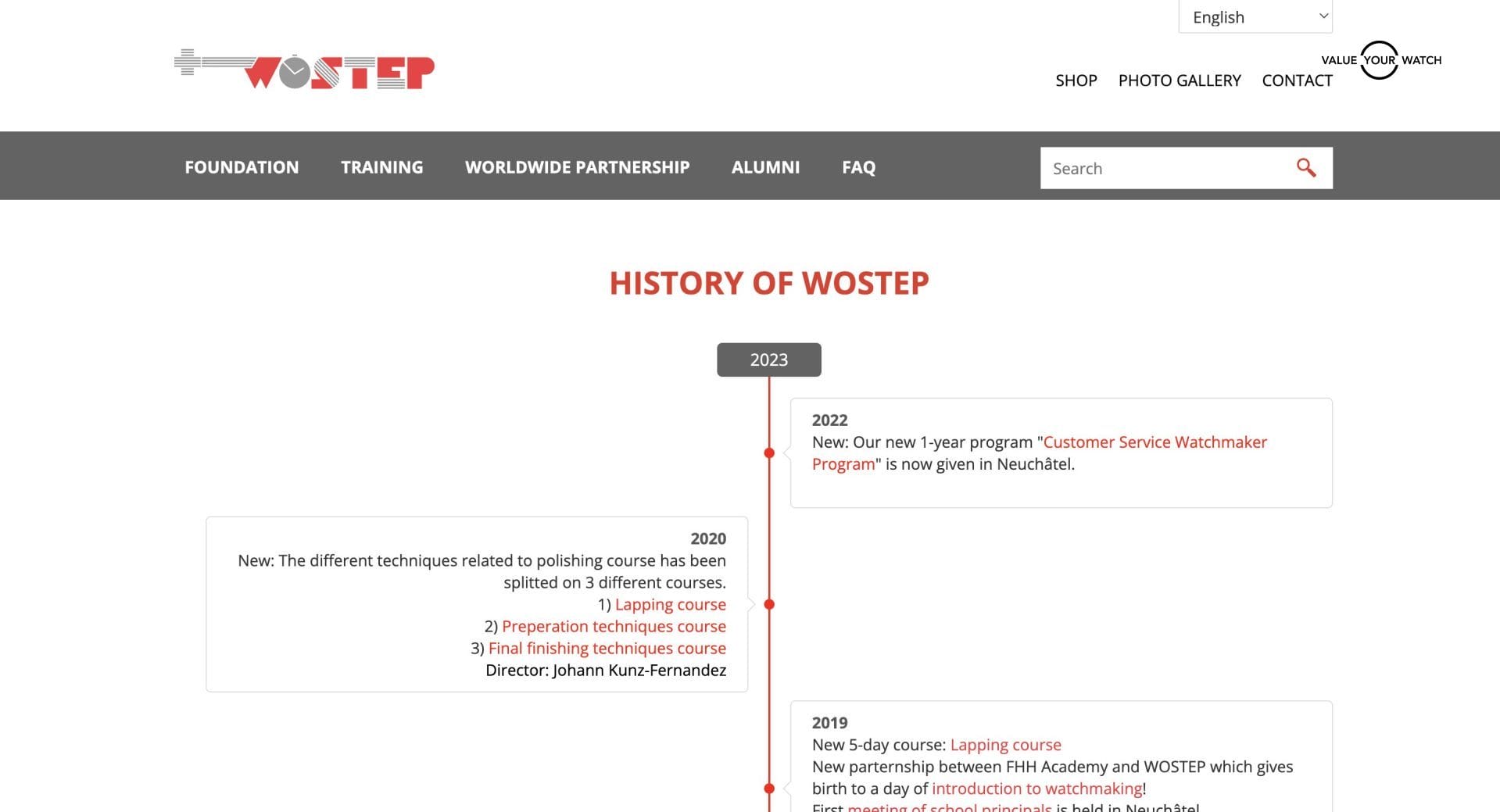
- WOSTEP (Watchmakers of Switzerland Training and Educational Program)
- Established in 1966 in Neuchâtel, WOSTEP began as a 1-year course tailored for North American watchmakers. Today, students attending WOSTEP can expect a tuition fee of $38,752 per year. This fee, although excluding accommodation, encompasses a variety of essentials: administrative support, a toolkit, horology theory books, specialized courses on specific products, and access to vital resources like tools, machines, and spare parts. Additionally, an upfront guarantee of $10,348.80 is required by the State of Neuchâtel to cater for living expenses. The school’s curriculum places a strong emphasis on hands-on practice, preparing students to master both modern Swiss mechanical and electronic watches. Alongside practical training, there’s a consistent integration of watchmaking theory.
- The school offers two primary training pathways. The first is an on-campus route that includes courses in micromechanics and watchmaking, leading to three certifications: CFC micromechanic (4 years), CFC production watchmaker (3 years), and CFC watchmaker specializing in refinishing (4 years). Alternatively, students can opt for the dual training pathway. This approach aligns with the same areas of study as the on-campus route but is facilitated through specific partnered companies.
- École d’Horlogerie de Genève
- Established in 1824, the Geneva Watchmaking School stands as a testament to the rich Swiss horological heritage, with its mission rooted in imparting the fine art of watchmaking to its students. Learners are presented with two primary training avenues at this esteemed public institution. The on-campus route offers full-time courses in micromechanics and watchmaking, culminating in three distinct certifications: a 4-year CFC micromechanic, a 3-year CFC production watchmaker, and another 4-year program for a CFC watchmaker specializing in refinishing. Alternatively, students can also choose a dual training approach, where specific partnered companies offer similar training programs in sync with the school’s curriculum.
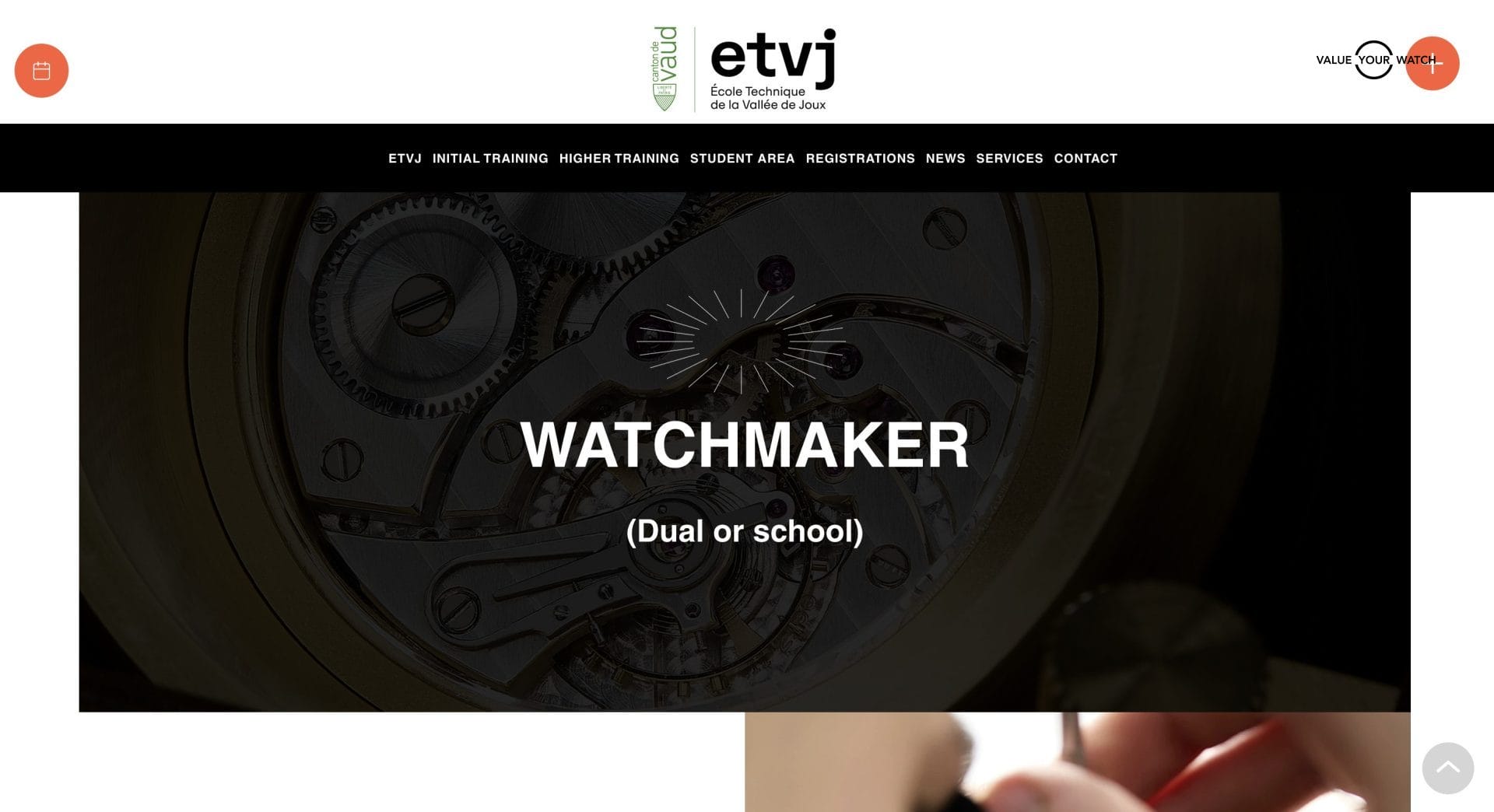
- École Technique de la Vallée de Joux
- Located at Rue G.-H. Piguet, 41 in 1347 Le Sentier, the Technical School of the Joux Valley places students at the epicenter of watchmaking tradition. The school’s central positioning offers a unique vantage point into the intricate world of horology.
- Graduates from the school are primed for many career opportunities in the watchmaking industry, with roles in after-sales services being particularly coveted locally and globally. The comprehensive training comes with an investment, with tuition at $16,576 annually over four years.
Watchmaking schools in Germany
- Staatliche Feintechnikschule Schwenningen – Schwenningen
Watchmaking schools in United States
- Lititz Watch Technicum (LWT)
- Located in the heart of Pennsylvania, LWT provides an impeccable foundation. They’re on the lookout for individuals who are mechanically inclined and gifted in problem-solving and communication. Begin by submitting an application on their website. If you catch their attention, a phone interview awaits, possibly followed by hands-on testing at their campus.
- The LWT program is demanding yet rewarding. Spanning an intensive two years from September to mid-August, students dive into over 3,600 hours of detailed instruction. And the best part? It’s tuition-free. Remember to budget for a personal tool kit, roughly around $7,000. Keep in mind housing and meals are on the student’s dime.
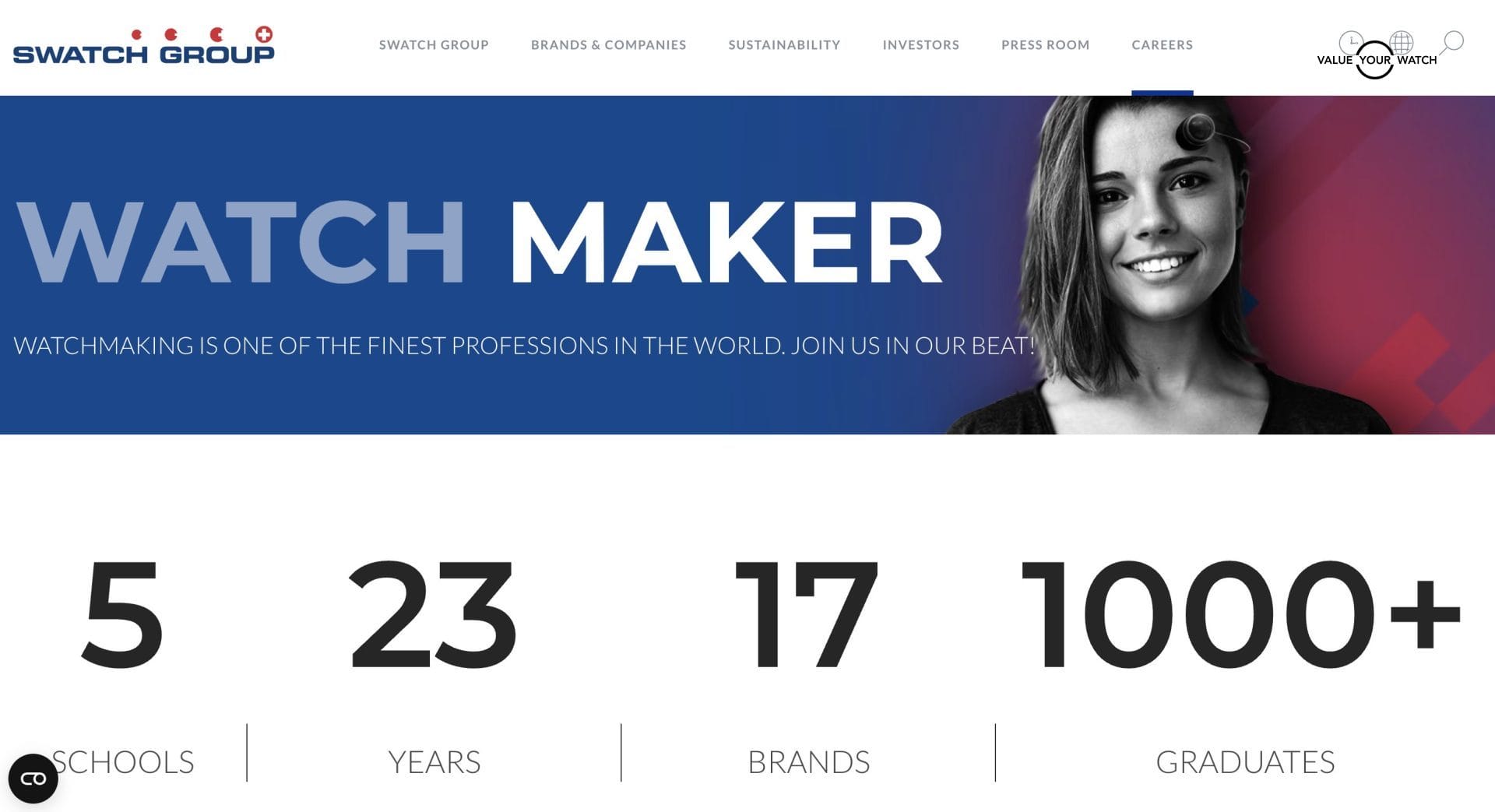
- Nicholas G. Hayek Watchmaking School
- Situated in Miami, the Nicolas G. Hayek Watchmaking School is nestled within their active Customer Service center, offering students a unique, hands-on learning experience. This immersive environment is perfect for those aiming for a rewarding career in watchmaking, either in the U.S. or internationally.
- The school’s main offering is the tuition-free ‘Customer Service Watchmaker’ program, following the WOSTEP 1800-hour curriculum. While students will need to invest around $3,000 for tools and handle their own housing, there’s a helpful monthly stipend available. However, only U.S. citizens or legal residents are eligible to enroll.
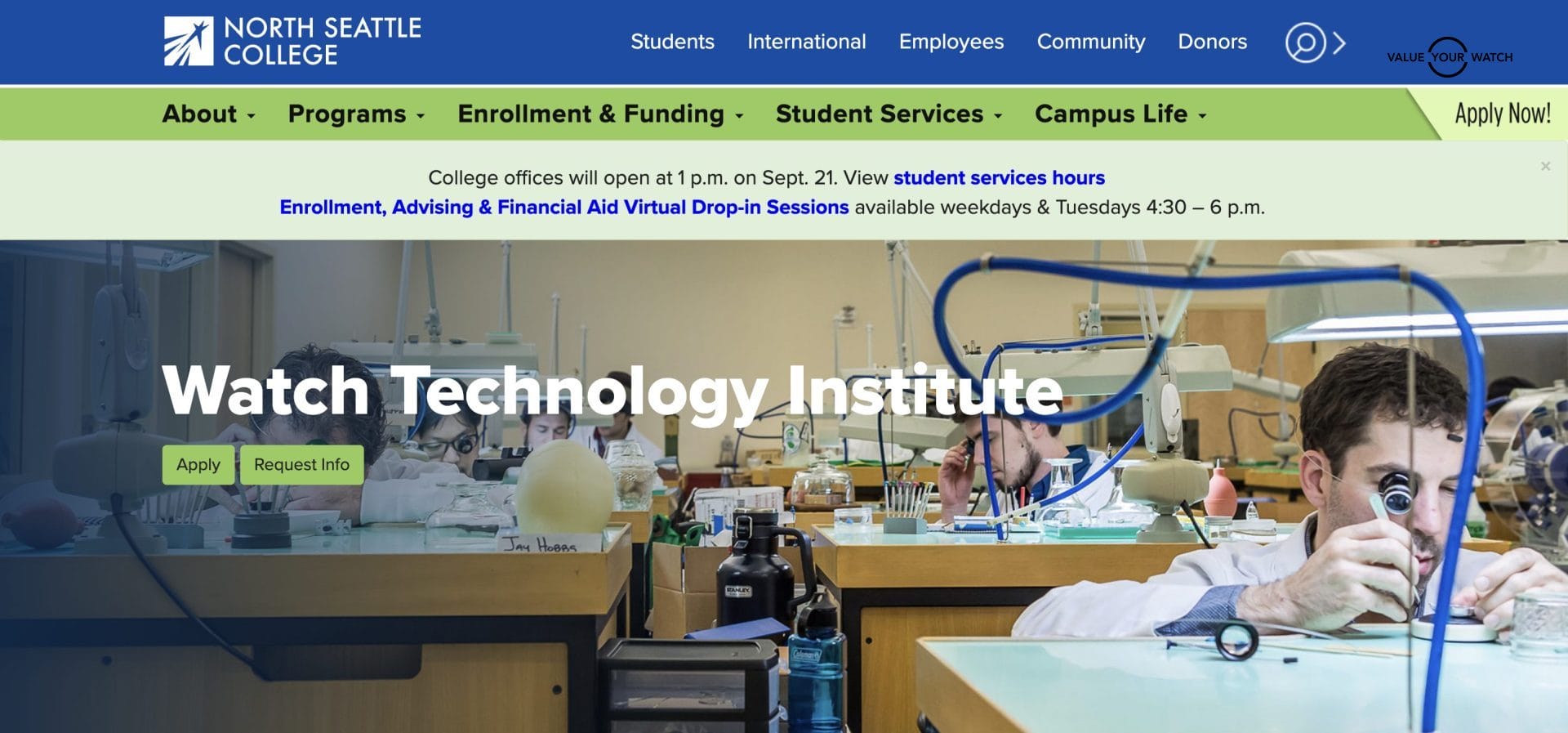
- North Seattle College’s Watch Technology Institute
- The Watch Technology Institute (WTI) at North Seattle College provides a 2-year, 3,000-hour professional watch repair program, supported by a partnership with Rolex Watch USA, Inc. The program aims to produce watchmakers adept at modern retail and service settings. Training includes watch movement repair, case and bracelet refinishing, water-resistance testing, and customer service. Students can opt for either a Certificate in Watch Technology (164 credits) or an Associate of Applied Science in Watch Technology (184 credits) and can seek 3rd-party certification via the Swiss American Watchmakers Training Alliance (SAWTA).
- Gem City College School of Horology (Quincy, Illinois)
- Gem City College School of Horology, located at 700 STATE ST, QUINCY, IL 62301, was founded in 1870 by D.L. Musselman as an institute of penmanship and bookkeeping. It’s renowned for its tradition of excellence. We train students in distinct areas, setting them on a path to becoming recognized craftsmen in watchmaking, clock and jewelry repair, engraving, and diamond-setting. The craft, ideal for those passionate about precise handwork, offers vast creative opportunities. With a flexible system, new students can start every Monday, progressing at their own pace with personalized instruction. The college environment mirrors the professional world, emphasizing discipline, appearance, and consistent attendance for optimal learning.
- Lititz Watch Technicum (Lititz, Pennsylvania)
- In 2001, Rolex founded LWT to address the watch industry’s challenge: the dwindling number of watchmakers qualified for high-end brands. This shortage traced back to the 1980s, when the rise of quartz watches reduced the demand for traditional watchmakers, causing watchmaking school numbers in the U.S. to plummet. But by the 1990s, high-grade mechanical watches regained popularity. As these watches need regular maintenance, a demand for skilled watchmakers surged. Responding to this, LWT updated its curriculum, establishing a new certification body, SAWTA (Swiss American Watchmakers Training Alliance).
- Patek Philippe Horology Program of New York (New York, New York)
- The two-year program trains apprentices in the intricate theory and hands-on practice of fine watchmaking, focusing on Patek Philippe quartz and mechanical movements. Graduates will be proficient in repairing Level 2 watches and handling issues in quartz, manual, and automatic movements independently. Meanwhile, the Henri Stern Watch Agency (HSWA), Patek Philippe’s key US subsidiary, operates a major service center in New York. This center, which sees around 10,000 watch repairs annually, is managed by just 19 watchmakers, highlighting the demand for skilled professionals.
- Texas Institute of Jewelry Technology (Paris, Texas)
- The Texas Institute of Jewelry Technology at Paris Junior College is renowned for its watchmaker training. As the demand for fine mechanical watches grows, so does the need for skilled watchmakers. The Horology Technology program, offered three times a year, equips students with skills in diverse watch repair techniques and provides both certificates and an AAS degree. The curriculum includes both practical training and business knowledge.
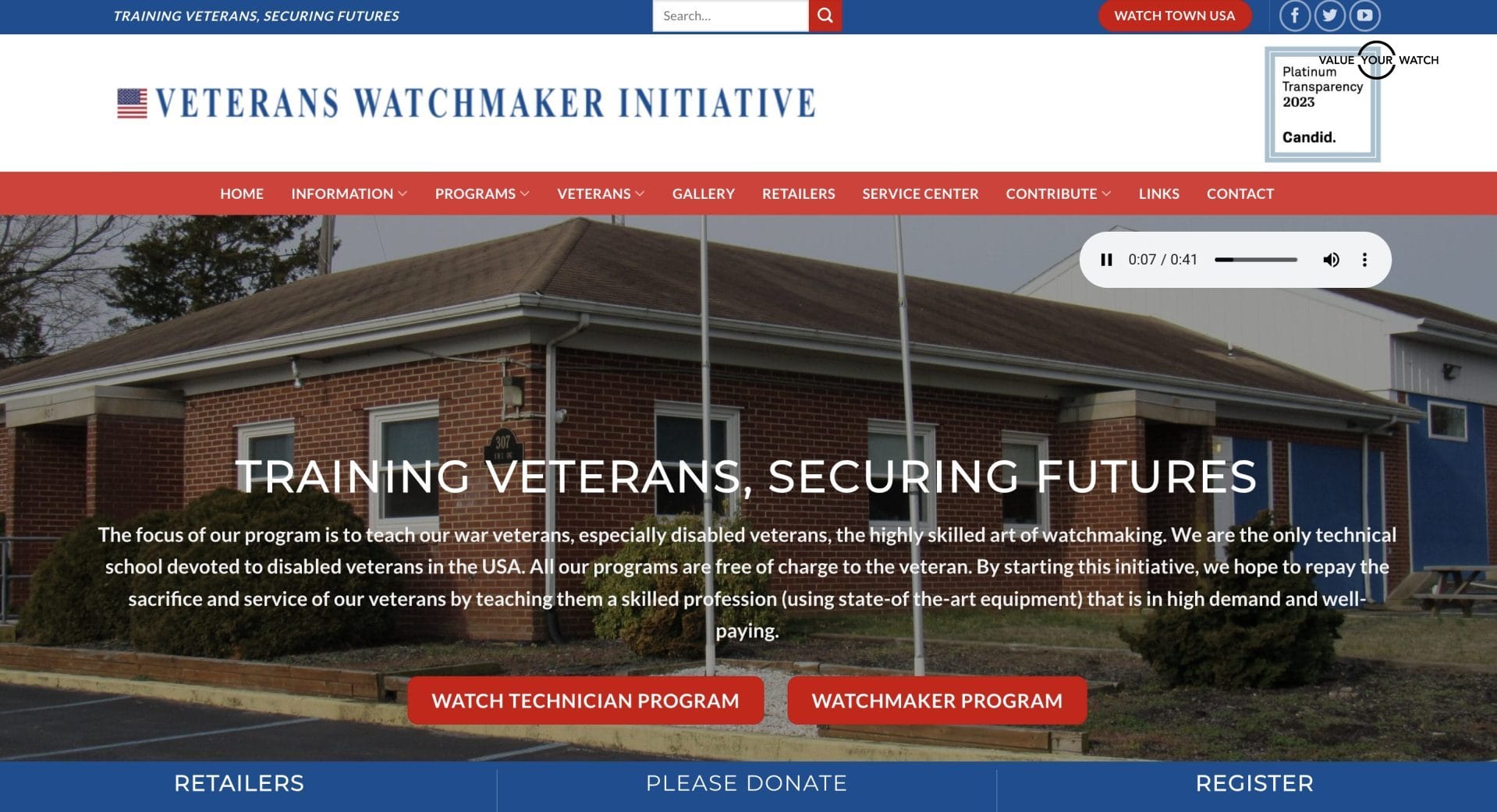
- Veterans Watchmaker Initiative (Odessa, Delaware)
- The Watchmaker Program is offered by the Veterans Watchmaker Initiative located at 307 Sixth Street, Odessa, Delaware 19730. This 19-month curriculum comprises 16 months (2,560 hours) of intensive watch repair training and a 3-month (480 hours) internship. Students are trained to repair both mechanical and quartz watches expertly. To graduate, students must pass module-specific competency tests, a comprehensive final exam, produce a school watch, and have the option of a 3-month internship at VWI’s Service Center. The program covers various topics including tool usage, micro-mechanics, watch theory, and business practices.
- York Time Institute (York, Pennsylvania)
- Since 2008, the York Time Institute has offered a 54-week Diploma Program licensed by the Pennsylvania State Board and has gained a reputation for its graduates being in high demand. Dedicated to the art and science of Horology, the institute emphasizes both traditional knowledge and new research areas. They offer specialized training in the conservation, restoration, and repair of timepieces from various periods, equipping students with professional watchmaking and clockmaking skills. The school welcomes all individuals, ensuring inclusivity, and is approved by the PA State Approving Agency for Veterans Educational Benefits. Furthermore, the York Time Institute operates as a 501(c)3 organization.
Watchmaking school in United Kingdom
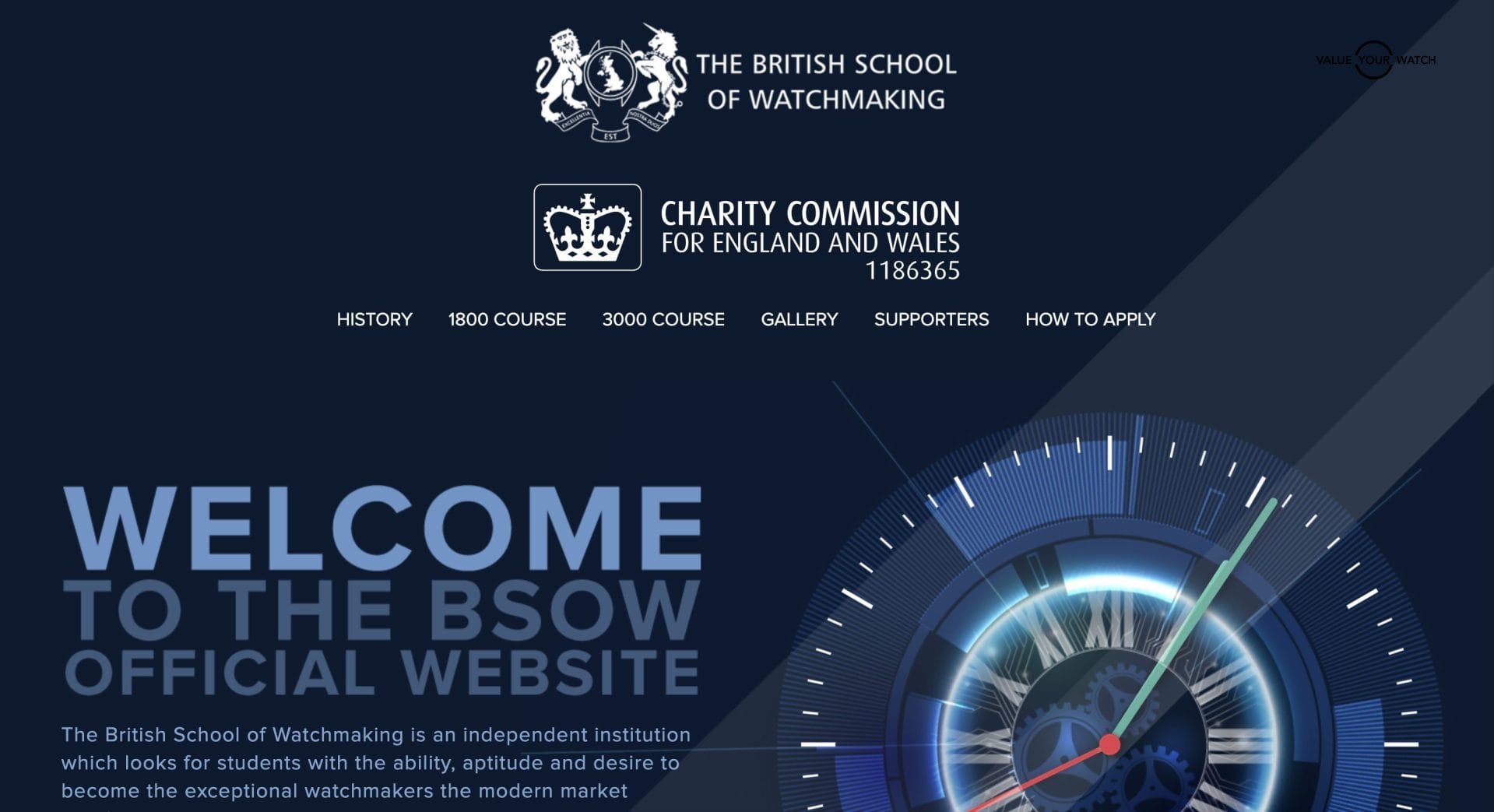
- The British School of Watchmaking
- The WOSTEP 3000 Hour Programme equips students for watch repair roles, covering both mechanical and electronic products. Graduates can evaluate, adjust, or even manufacture certain components as needed. Recognized by the Convention Patronale as equivalent to the Swiss CFC 4-year program, this full-time course spans two years, Monday to Friday, 8:00 am-5:00 pm. Courses start in January every other year, with applications closing on July 1st the preceding year.
- Skills acquired include encasing, servicing various movements, micromechanics, advanced regulation techniques, and quality control. Graduates excel in working with both modern and vintage watches, whether parts are abundant or scarce.
- Assessment involves five intermediate tests and a final examination covering theory and servicing of different watch types. There’s an optional work experience slot after the first year.
- Course fees total £20,700, covering a £2,700 toolkit (price may vary), all essential materials, and exams. Graduates own the toolkit post-course, and they may also craft two watches (WOSTEP W-01 & ETA 6498), though the latter depends on individual progress and teacher discretion.
Watchmaking school in France

- Lycée Polyvalent Edgar Faure
- The CAP Horlogerie offers two apprenticeship tracks:
- A 2-year program for students post-3rd class or unqualified, covering topics like Workshop, Applied arts, Construction, Masterpiece, French, History-geography, Maths, Physics, English, PSE, and more.
- A 1-year program for those with a diploma, focusing on Workshop, Applied arts, Construction, Masterpiece, and PSE.
- Apprentices spend 14 weeks in high school and 33 weeks in business.
Watchmaking school in Australia
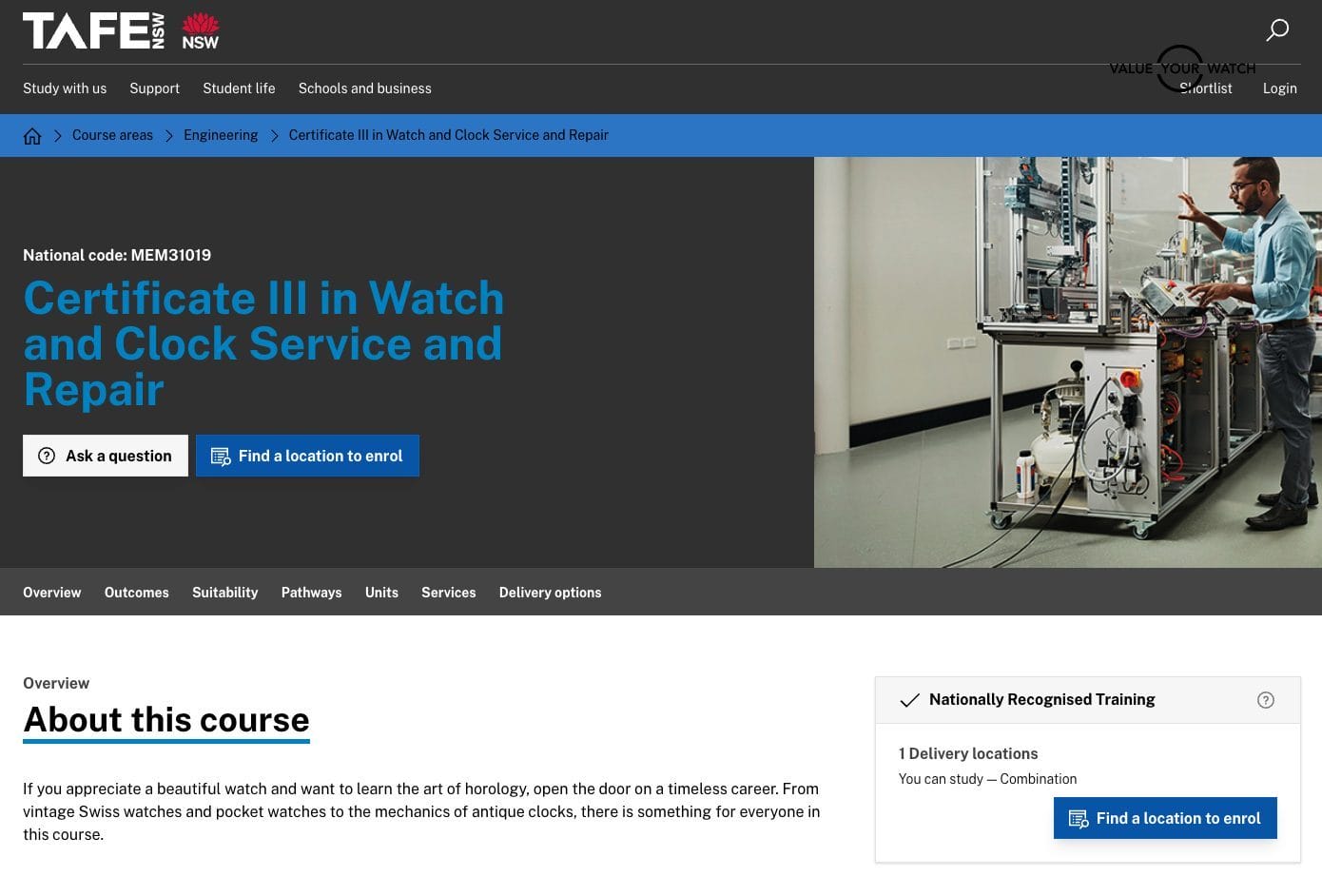
- Sydney TAFE (Look for watchmaking or horology courses under their program offerings)
Watchmaking school in Finland
Watchmaking schools in Japan
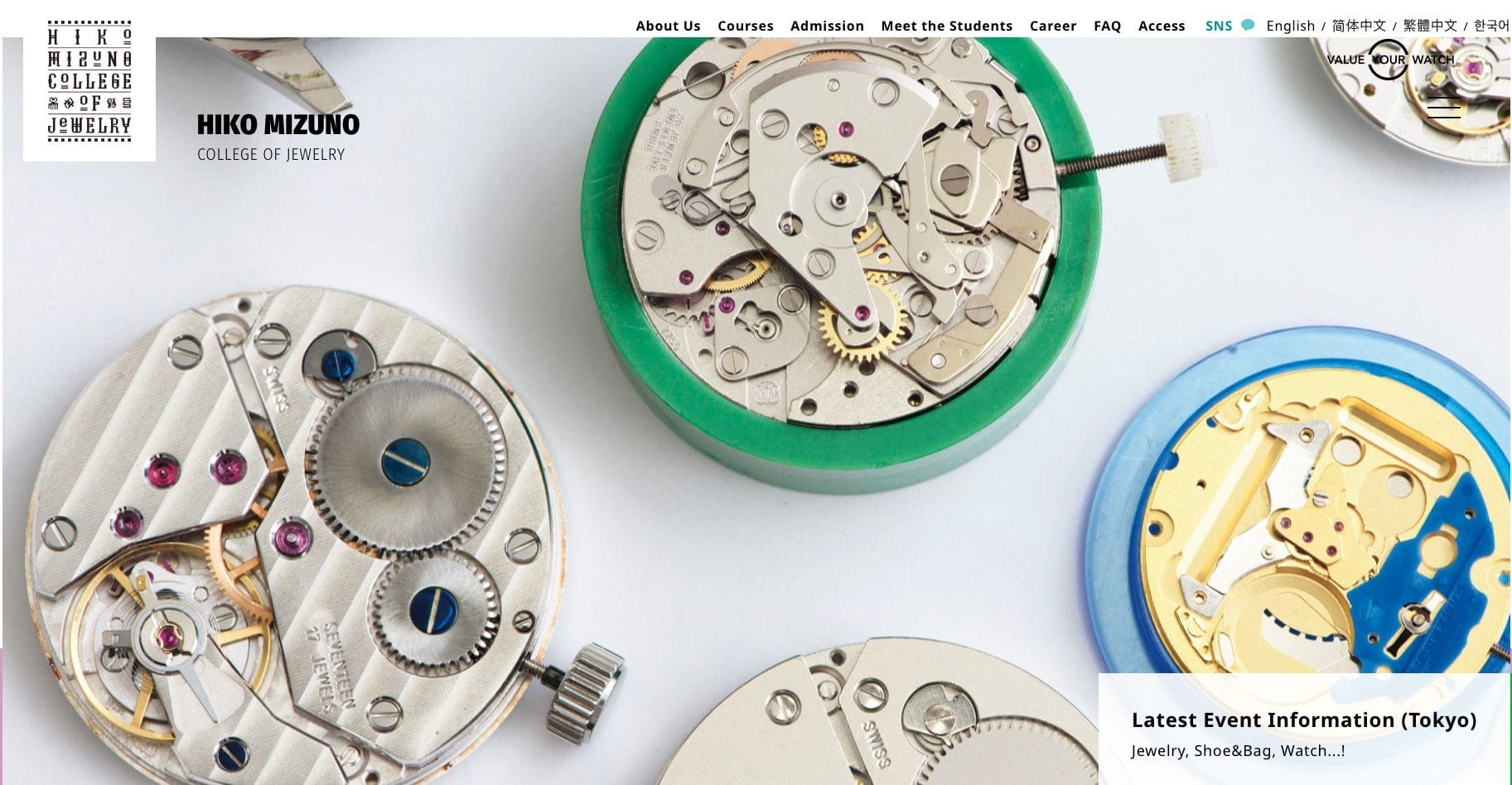
- Hiko Mizuno College of Jewelry
- Master Watchmaker Course: Location: Tokyo Duration: 3 years Tuition (annually): ¥1,498,800 (approx. $10,691.43 at ¥140 to $1) Beyond the foundational 2-year Watchmaker Course, students here rigorously study the repair of complex chronograph watches, aiming for global industry relevance.
- Tools: Beginners in watch repair are first introduced to tool adjustment. Students refine screwdriver and tweezer tips and can even create their own tools and parts using learned techniques.
- Overhauling Watches: This module covers a range, from traditional Japanese metalworking to the WAX technique for crafting silver accessories. Additionally, students can showcase their work, establish their brands, organize exhibitions, and gain media exposure.
- Internships: Internships and factory visits at Japan’s premier watch brands, “Seiko” and “Citizen”, offer students an in-depth understanding of the entire product development flow, a significant step in their professional watchmaking journey.
There are many different watchmaking schools around the world. The key is to find the one that’s right for you. Some watchmaking schools are run specifically by watch manufacturers. This list of watchmaking schools should give you an idea of what’s out there in the horology world.






